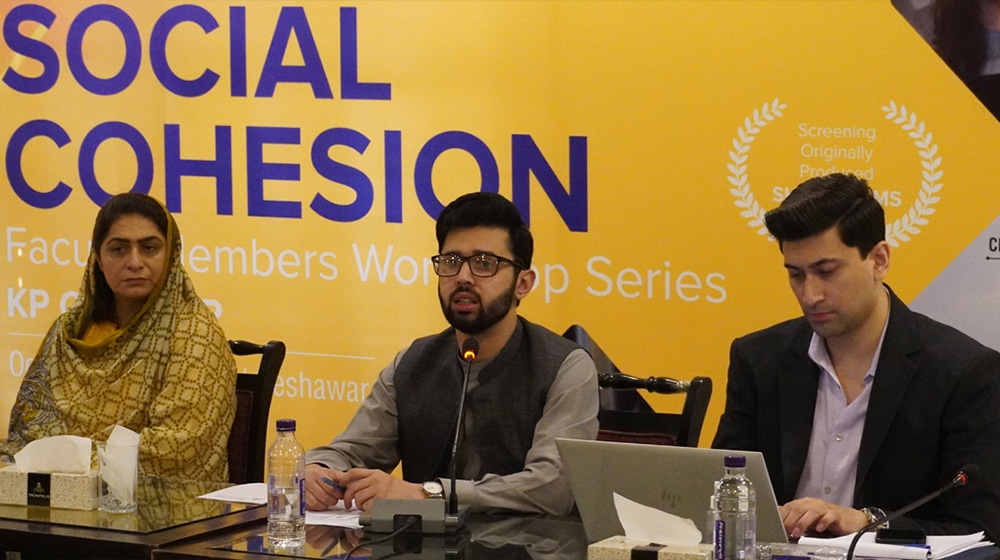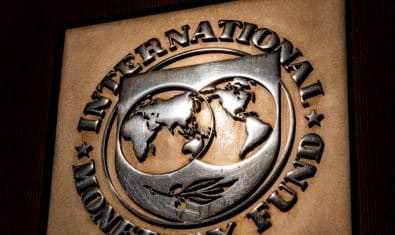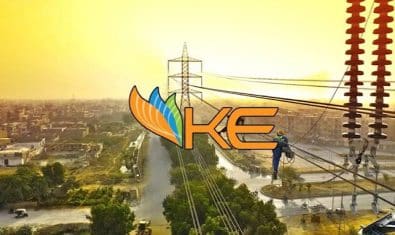Rule of law and democracy are interlinked as they belong to a similar set of universal values and principles.
They are mutually reinforcing, and this is where upholding the rule of law is essential for the protection of all human rights and fundamental freedoms as well as to achieve sustained economic growth, sustainable development, and eradication of poverty and hunger. Both are means to the same end purpose; safeguarding individual liberties and protection.
These remarks were made by Muhammad Azhar Khan, Superintendent of Police (SP) Cantt, Peshawar, during the KP Chapter of Paving Pathways to Social Cohesion – Faculty Members Workshop Series, organized by the Center for Research and Security Studies (CRSS).
He said that revisiting existing laws to gauge their responsiveness, application, and adaptability to the changing context and realities is also a subject of rule of law. The onus to uphold rule of law lies on all the actors as part of the legal system, as exploitation of the system in their personal/ selfish interest to take unfair advantage out of it, even by a few of them can be detrimental to rule of law, hamper public access to justice and affect the credibility of the entire system.
While rule of law means that everyone is equally subject to and accountable before the law, it also means accountability of law and procedures as well as the ones implementing the law. It is most certainly our right to be protected by laws, but at the same time, we are responsible for respecting laws.
The notion of the rule of law cannot be seen through the rights paradigm alone, but careful consideration and fulfillment of obligations are also a prerequisite. As a matter of responsible citizenship, the citizens must duly consider that in exercising their freedoms; of movement and assembly, they should not affect others’ freedoms.
Speaking at the workshop, Advocate Ali Gohar Durrani, Founding Partner, Shah Durrani Khattak Law Firm, noted that social cohesion demands that every member of the society should feel that they are an equal part of and equally belong to the society, and can equally and equitably participate in the socio-political and economic life without facing any discrimination of color, cast or creed. Unfortunately, the minority groups in society suffer the most at the hands of and are most vulnerable to discriminatory attitudes in society. However, equal citizenry rights are enshrined in the constitution of Pakistan, especially emphasized in Articles 8-28.
For instance, Article 25 clearly states that all citizens are equal before the law and are entitled to equal protection of the law, still, unfortunately, issues of inequality between different social classes persist, especially how even relatively moderate and educated members can end up discriminating against and violating the equal citizenry rights of the marginalized members of the society.
Shagufta Khalique, an educationist, said that social cohesion only strengthens through acceptance, equality, and rule of law. Acceptance of diversity is a precondition for peaceful coexistence. Also important is to build understanding about other faiths for interfaith harmony the society. Communication and empathy are critical to conflict resolution and youth as future leaders must equip themselves with these skills. Ironically, the country even whose name means peace is suffering at the hands of conflict and striving for peace.
Sameena Imtiaz, Head of Programs at CRSS, noted that there are innumerable instances of how the commoners’ lack of knowledge about their human rights can be the very cause of violating their rights. The best they can do to empower themselves is to familiarize them with their constitutional rights, as ignorance of such knowledge has a huge potential to cause them suffering. While we have made some advancements in terms of women’s rights and empowerment, there are still some serious challenges that need to be addressed as a fundamentally essential prerequisite for a more connected and prosperous future.
Mustafa Malik, Team Leader, CRSS said intolerance towards minorities is a global issue and may be present in other societies across the world too, however, that may not be used as an excuse to justify this issue in your own country. Acceptance of diversity is an ideal worth pursuing. He also noted that critical thinking is about using critical inquiry, developing understanding by using research-based evidence as key to supporting your arguments, and only drawing inferences on the basis of all the available information.
Participated by a diverse group of young faculty members from universities across KP, who actively participated in the discussion on these core themes, the workshop also screened short films originally produced by CRSS.


























